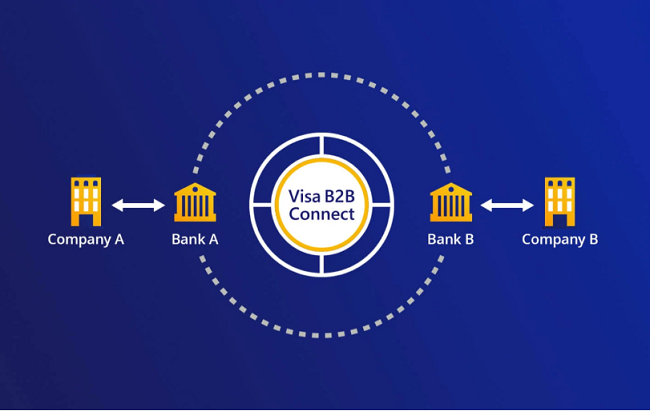Visa has announced the commercial launch of the Visa B2B Connect, a distributed ledger-based, non-card payment network.
First previewed in October 2016, Visa B2B Connect aims to give financial institutions a simple, fast and secure way to process cross border business-to-business payments globally. Its distributed-ledger based architecture enables significantly shorter transaction times, from weeks to one-to-two days.
In its press release dated June 11, Visa announced that the platform’s commercial launch will cover more than 30 global trade corridors.
Visa B2B Connect helps eliminate friction and time spent on cross-border corporate transactions by facilitating transactions from the bank of origin directly to the beneficiary bank. In addition, its digital identity feature tokenizes sensitive business information, such as banking details and account numbers, by giving them a unique identifier that can be used to facilitate transactions on the network.
“With Visa B2B Connect, we are leveraging Visa’s existing assets and our expertise in cybersecurity, data privacy, the scale of our network – and layering that with new elements of distributed-ledger technology to meet unique needs of this industry,” said Sam Hamilton, SVP, data product development at Visa. “This lays the foundation for a service with the potential to transform cross-border payments.”
In the past couple of months, Visa forged partnerships with a number of companies including Bottomline, FIS, and IBM, which, it said, are integral parts of the future scale of Visa B2B Connect. Banking institutions including Commerce Bank and Cornèr Bank participated in the platform’s pilot program.
“Bottomline and FIS are bringing Visa B2B Connect platform access to its participating bank clients. Along with Visa’s core assets, Visa B2B Connect utilizes open source Hyperledger Fabric framework from the Linux Foundation, in partnership with IBM. This helps provide an improved process to facilitate financial transactions on a scalable, permissioned network,” Visa said.
Visa aims to expand the platform to as many as 90 markets by the end of 2019.


























Comment 0